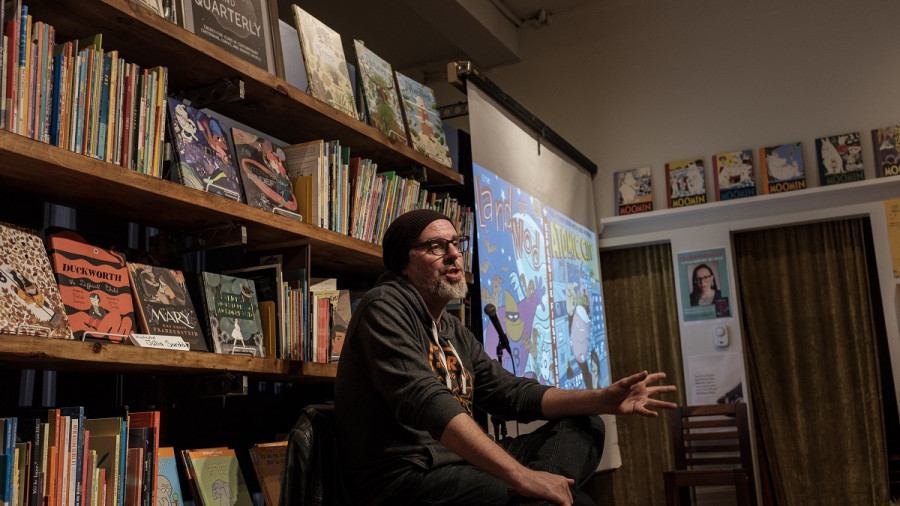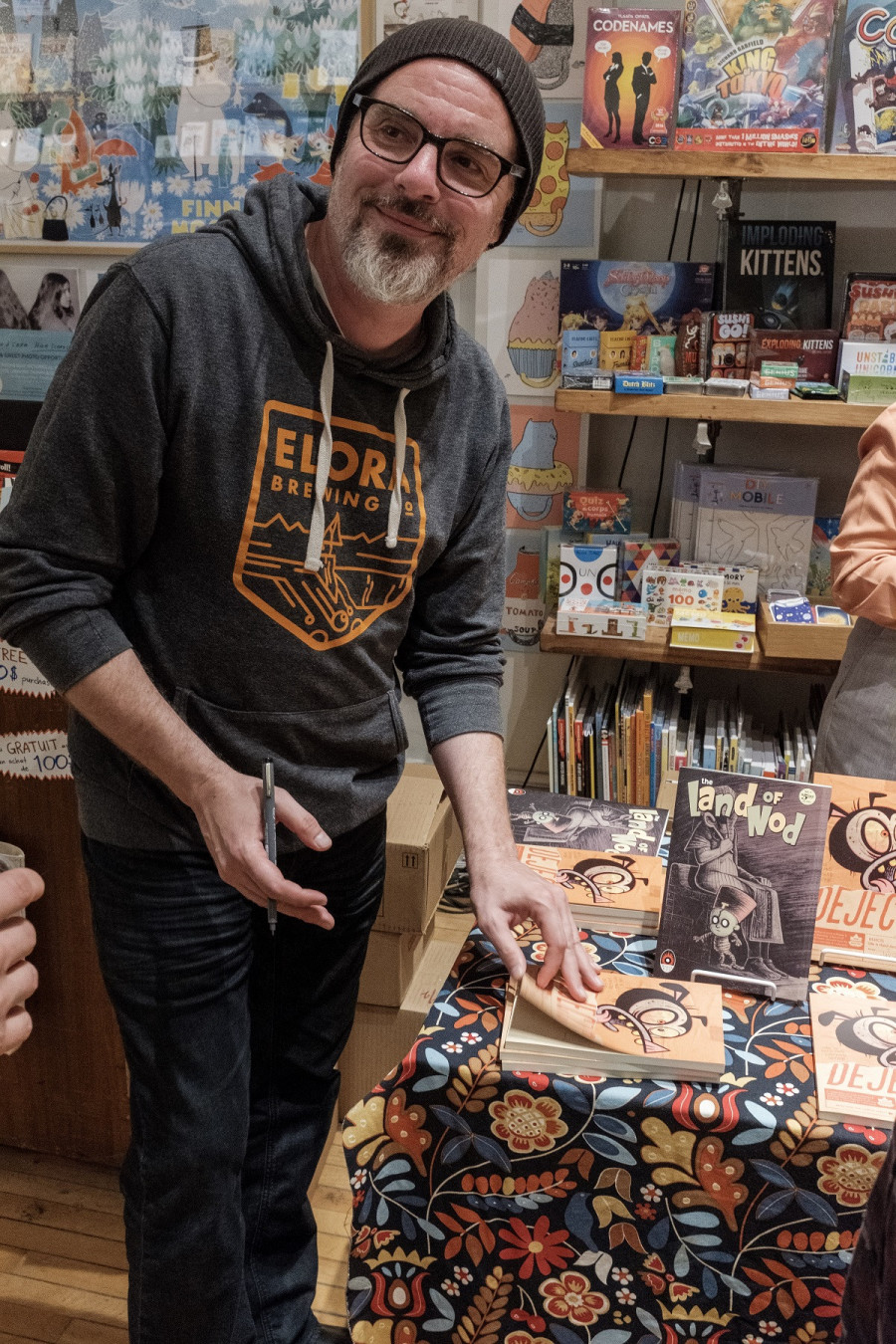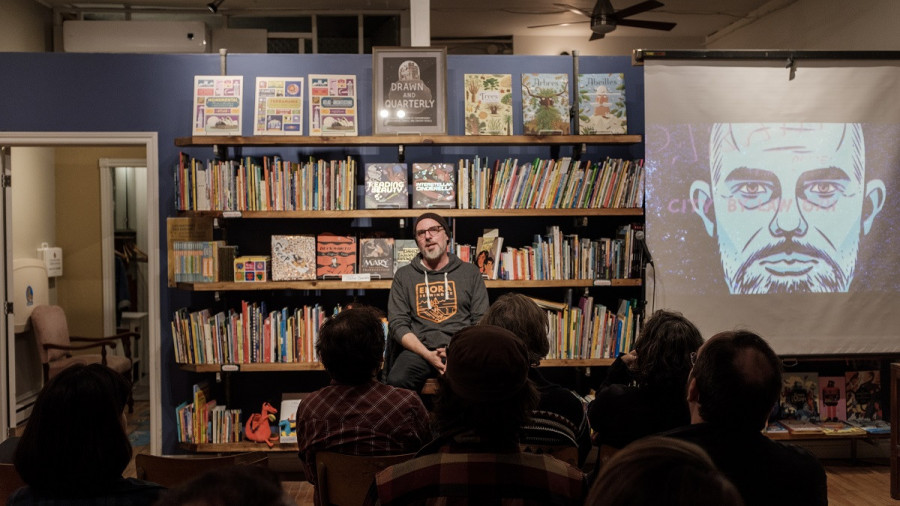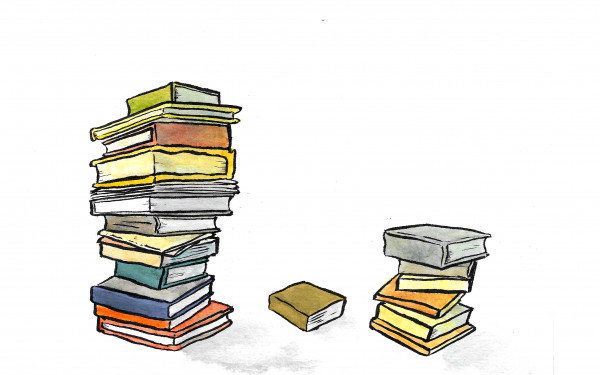Jay Stephens Launches ‘Dejects’: 30 Years of Rejected Work
The Emmy Award-Winning Cartoonist Finds a Reason to Keep Fighting
“The storytelling bug is back, I just don’t want to be corporate anymore,” said Canadian cartoonist Jay Stephens after a six year publishing hiatus.
Dejects, a chronicle of a career’s rejected comics by Emmy award-winning cartoonist Jay Stephens, launched in Montreal last week, raised money and awareness for mental health.
Dejects is a crowdfunded, mature comic book from an artist otherwise known for his work as a writer-illustrator for Chickadee Magazine, OWL Magazine and as a cartoonist for Nickelodeon, as well as the creator of the two-time Emmy award-winning show, Tutenstein on Discovery Kids.
The comic raised $550 for Mental Health Research Canada.
Stephens said that the book itself is about mental health. Michel Vrana, publisher of Dejects, remembered asking his friend if everything was OK after reading a chapter-long comic strip where the only word said was ‘help’ about 75 times.
Thirty years in the making, Dejects shines a light on Stephens’ darkest thoughts, in stark contrast with the cartoons and comics that he was doing for kids at Nickelodeon and Chickadee.
The contrast, Stephens said, was a perfect example of his struggle with mental health. “This is autobiographical—this is the real stuff,” he said.

A comic in Dejects, “Twerp” is a rejected daily-newspaper pitch about a guy whose life is falling apart, and whose wife and kids hate him. He jokingly wondered where he got that idea. “It’s terrible that I thought anyone would be interested in this,” he said.
This is the first time many of the comics are in colour, said Vrana. Even the colours used are a sharp turn from his other work; while OWL and Chickadee were bright yellow and pink, Dejects is a dark purple and orange.
The subject matter, rather than teaching kids about school and science, offers a somber look at the reality of being an artist. “It’s like the same panic attack over and over again,” Stephens said.
The book launch in Montreal was hosted at Drawn & Quarterly, and the room was filled with friends of Stephens’ and Vrana’s.
As Stephens presented his work, he was reflective and poked fun at himself, which brought laughs as he spoke about his career.
“Money is the most pathetic way to live.” —Jay Stephens
He recounted getting on the bad side of The Simpsons creator Matt Groening, and another time, when he denied Gavin McInnes, founder of the far-right neo-fascist organization Proud Boys and far-right political commentator, a job writing for Chickadee.
Also, recalling the time he turned down an invitation to work on SpongeBob SquarePants he said, “You know what? I already have a show in the works.”
Seven years later, his show Tutenstein along with SpongeBob SquarePants would go on to win Emmys. He said his float in the 2004 Macy’s Thanksgiving Day Parade was literally overshadowed by a huge blow-up SpongeBob.
But he took it well—“After all,” he said, “I’m still alive.”
After seven years of production on Tutenstein, he didn’t feel like the show was his anymore.

“ Tutenstein was practically a licensing deal,” he said, “It so barely resembled [my] Tutenstein that I asked my agent, ‘Why don’t they create their own show?’”
After Tutenstein’s final season, the cartoonist moved to Los Angeles to work on The Secret Saturdays for Cartoon Network, against the advice of his friend and comic artist Darwyn Cooke.
“This is going to ruin your family, ruin your life,” Stephens recalled Cooke saying. “And it did,” Stephens said, looking back.
“ Secret Saturdays was me half giving up.”
Broke and on the verge of a mental breakdown, he was drawing newspaper comics.
“My total take for the month was $750, that didn’t even cover my car,” said Stephens. “I also went through a divorce where the money kind of went away.”
In 2010, Stephens “retired” from drawing.
“The stress was so intense and I was carrying so much weight—drawing and writing felt like it was part of the problem,” he said.
Stephens didn’t draw anything for two years. “It made me think about why I drew.” He recalled asking himself, “Who am I trying to impress? Why am I doing this? Who the fuck cares about your stories?”
“When I first started drawing as a kid, I got positive feedback from my mom and my grandparents. That’s why I kept doing it, probably until I was 25.”
“Then I had a family.” He had to decide whether being an artist would be a hobby or a job.
He said, “For a long time, I was oppressed by standardized measures of success. I had a wife, two kids, [the pressure of] being a successful animator—it wasn’t me.”
“Money is the most pathetic way to live,” he added.
Stephens said, “Kids [are] what saved me from not wanting to draw.” He started hosting drawing lessons for children in 2011. Since then, he rediscovered why he loved being an artist. “All kids draw, they all make art and lose it over time.”
“When I see kids encouraged and inspired by their work, they have this pure passion for it,” he continued. He said teaching is amazing.
Stephens is back at the drawing board, saying, “It feels good to be back, one foot in the gutter.”





1_600_375_90_s_c1.jpg)

